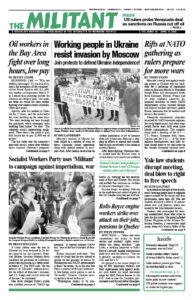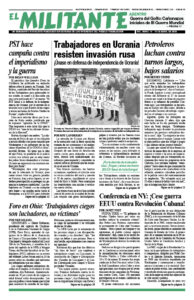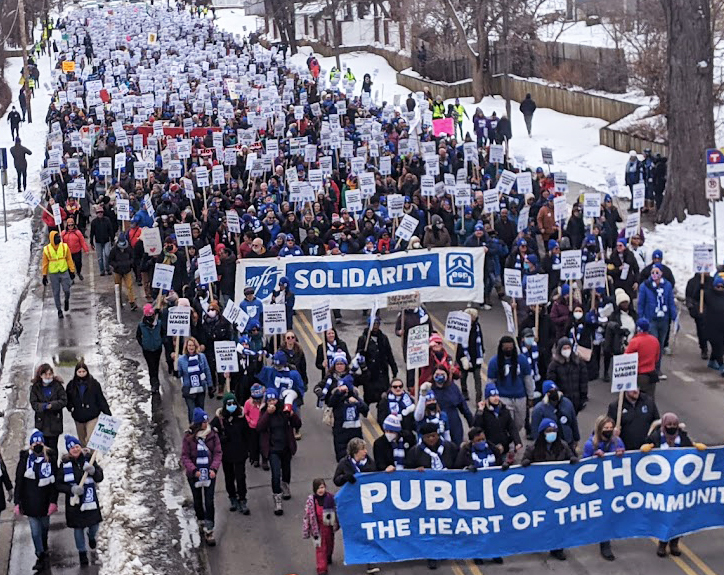MINNEAPOLIS — Members of Minneapolis Federation of Teachers Local 59 voted to end their nearly three-week strike March 27, having made progress.
The union said that both of its contracts — the one covering 4,500 teachers and the other for staff members called Education Support Professionals — were adopted, by an 80% vote of the ESPs and by 76% of the teachers. The support staff deals with transportation, translation, one-on-one assistance in the classroom and after work programs.
The strike was marked by the teachers, a majority in the bargaining unit, standing up for the lower-paid Education Support Professionals by demanding they get higher salaries and other protections.
The new contract, which runs through the end of the 2022-23 school year, was posted on the union website. It includes a raise in the starting salary for the support staff from $19.83 an hour to $23.91, as well as a $6,000 to $7,000 bonus. They also won more hours, though that agreement is temporary and not included in the contract.
Teachers won a minimum 2% pay raise and a $4,000 bonus, as well as a cap on overly large class sizes. They also won an increase in school counselors and in mental health workers, as well as affirmative action layoff protection.
Throughout the strike the union’s demands and actions were highly visible, with large rallies backed by community participation at City Hall, school board headquarters and the state Capitol.
At the union headquarters where voting was taking place, several union members told the Militant their opinions about the settlement.
“Even with the wage increase we got, I’ll still need to work a second job to support my family of six,” said Jessica Grunau, an education support professional who works with special education students at the elementary school level. “But I’m ready to get back to school. I miss my students.”
“The ESPs made some headway,” Brett Hutcheson, another special Ed support professional, said. “But I feel like the teachers didn’t gain much and really didn’t get a fair deal. I don’t want us ESPs to be pitted against them. We’re in this together.”
“The school board saw we meant business,” a teacher, who didn’t want to give her name, said. “No, we didn’t make enough progress, but we showed we were united and what we are capable of in the next contract.”
The overall sentiment, which was reflected in the contract vote, was that while union members didn’t get everything they wanted, the unity of the membership, and community support they won, registered gains and greater unity for battles to come.


